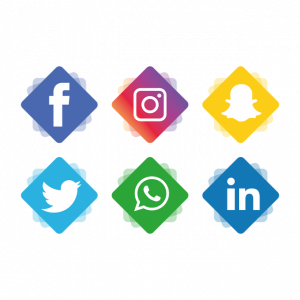Your Ultimate Florida Roofer Guide: How to Choose the Best ContractorYour Ultimate Florida Roofer Guide: How to Choose the Best Contractor

The Importance of Local Expertise in Florida
When it comes to selecting a Roofing contractor in the Sunshine State, local experience is more than just a bonus—it’s a necessity. Florida’s climate, with its scorching sun, torrential rains, and hurricane-force winds, demands a roofer who understands these specific challenges. A roofer with local experience knows how to craft a roof that not only looks good but also stands the test of time. For anyone considering a roofing project, it’s wise to
-
.
- Key Points to Consider:
- Familiarity with local weather conditions ensures your roof is built to last.
- Local roofers are well-versed in Florida’s building codes and regulations.
- Quick response times during emergencies, a hallmark of a reliable local roofer.
Benefits of Hiring a Local Roofer
Hiring a local roofer in Florida has several advantages. They are not only aware of the specific needs that Florida’s climate imposes but also know how to work efficiently within the state’s regulations.
- Why Choose Local?
- Community Trust: Local roofers rely on their reputation. They are more likely to deliver top-tier services to maintain their standing in the community.
- Rapid Response: When disaster strikes, a local roofer can be at your door quickly, reducing potential damage.
- Tailored Solutions: With a deep understanding of the climate, local roofers can recommend roofing materials that are best suited for Florida’s harsh weather.
By opting for a local contractor, you’re choosing someone who knows the ropes of roofing in Florida. This Florida roofer guide emphasizes the importance of trusting local experts who have proven their reliability over time.
Credentials Matter: Verify Before You Hire
Before you sign on the dotted line, it’s crucial to verify that your chosen roofer is licensed and insured. In Florida, where roofing projects can be complex due to weather conditions and specific building codes, this step is non-negotiable.
- License and Insurance: protect yourself by ensuring your roofer holds a valid Florida license and adequate insurance coverage.
- Verification: Visit the Florida Department of Business and Professional Regulation (DBPR) to check the roofer’s credentials.
- Certifications: Roofers with manufacturer certifications often provide better warranties and demonstrate a higher level of expertise.
Verifying these credentials is a cornerstone of this Florida roofer guide. It ensures that your roofer is qualified to handle the unique demands of Florida roofing projects.
The Power of Professional Affiliations and Certifications
Roofers who go the extra mile to obtain certifications and join professional organizations are committed to excellence. This commitment often translates into better workmanship and longer-lasting results.
- Manufacturer Certifications: These certifications indicate that a roofer has undergone specialized training and can offer superior warranties.
- Professional Affiliations: Membership in organizations like the National Roofing Contractors Association (NRCA) is a sign of professionalism and dedication to staying updated with industry standards.
Using this Florida roofer guide, ensure your contractor has the right credentials and affiliations to guarantee the quality of your roofing project. To ensure the longevity of your roof, you should always
-
.
Experience and Quality: The Hallmarks of a Reliable Roofer
Experience is often a predictor of quality. A roofer with a long track record in Florida likely knows how to deliver high-quality services that meet the state’s specific needs.
- Years in Business: Longevity in the industry is a good indicator of reliability and expertise.
- Specialization: Different roofing materials require different skill sets. Ensure your roofer specializes in the type of roofing material you need.
This Florida roofer guide highlights the importance of choosing a contractor who has both experience and specialization to ensure your roof can withstand Florida’s unique climate challenges.
Evaluating Online Reviews and References
Before making your final decision, take the time to read online reviews and ask for references. This step can provide valuable insights into a roofer’s reliability and the quality of their work.
- Consistency: Look for consistent positive feedback across multiple review platforms.
- Detailed Reviews: Pay attention to detailed reviews that mention specific aspects of the service.
- References: Don’t hesitate to ask for references from past clients to get a firsthand account of their experience.
This Florida roofer guide suggests using reviews and references as tools to ensure you’re making the best choice for your roofing project.
Red Flags to Avoid: Ensuring a Safe Roofing Experience
When choosing a roofer, be on the lookout for warning signs that could indicate potential problems. This Florida roofer guide provides tips on avoiding common pitfalls.
- High-Pressure Sales Tactics: Beware of roofers who rush you into making a decision. A reputable roofer will give you the time and information needed to make an informed choice.
- Unusually Low Estimates: If a bid seems too good to be true, it probably is. Low estimates can indicate subpar materials or workmanship.
- Lack of a Written Contract: Always insist on a detailed written contract to protect yourself from misunderstandings or disputes.
Homeowners in Florida should prioritize finding a
-
.
Additional Considerations: Questions to Ask
Before finalizing your decision, ask the roofer these important questions:
- What warranties do you offer?
- Can you provide a detailed timeline?
- How will you handle cleanup and disposal?
These questions, outlined in this Florida roofer guide, will help ensure you’re choosing a contractor who is both reliable and transparent.
FAQs: Answering Your Roofing Questions
This Florida roofer guide wouldn’t be complete without addressing some common questions homeowners have when choosing a roofer.
Q1: How often should I have my roof inspected?
- A: It’s recommended to inspect your roof annually and after major storms.
Q2: Can a new roof increase my home’s value?
- A: Yes, a new roof can enhance curb appeal, energy efficiency, and overall home value.
Q3: Is it possible to install a new roof over the old one?
- A: While possible, it’s generally not recommended. Removing the old roof allows for a thorough inspection and addresses underlying issues.
Before starting any roofing work, make sure to -.


